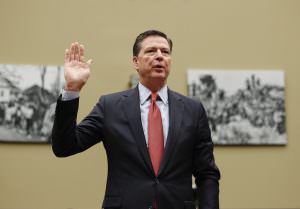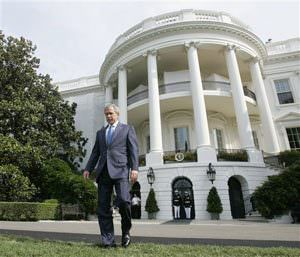White House Held Torture Tape Discussions
A new report by The New York Times suggests that the White House was a lot closer to those secret CIA torture tapes than has been previously suggested "At least four top White House lawyers took part in discussions between 2003 and 2005 about whether to destroy videotapes," according to the Gray Lady.A new report by The New York Times suggests that the White House was a lot closer to those secret CIA torture tapes than has been previously suggested. “At least four top White House lawyers took part in discussions … between 2003 and 2005 about whether to destroy videotapes,” according to the Gray Lady.
Your support matters…New York Times:
At least four top White House lawyers took part in discussions with the Central Intelligence Agency between 2003 and 2005 about whether to destroy videotapes showing the secret interrogations of two operatives from Al Qaeda, according to current and former administration and intelligence officials.
The accounts indicate that the involvement of White House officials in the discussions before the destruction of the tapes in November 2005 was more extensive than Bush administration officials have acknowledged.
Those who took part, the officials said, included Alberto R. Gonzales, who served as White House counsel until early 2005; David S. Addington, who was the counsel to Vice President Dick Cheney and is now his chief of staff; John B. Bellinger III, who until January 2005 was the senior lawyer at the National Security Council; and Harriet E. Miers, who succeeded Mr. Gonzales as White House counsel.
Independent journalism is under threat and overshadowed by heavily funded mainstream media.
You can help level the playing field. Become a member.
Your tax-deductible contribution keeps us digging beneath the headlines to give you thought-provoking, investigative reporting and analysis that unearths what's really happening- without compromise.
Give today to support our courageous, independent journalists.






You need to be a supporter to comment.
There are currently no responses to this article.
Be the first to respond.